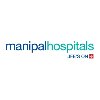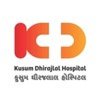2 Shrimann Superspeciality Hospital Jobs
MEDICAL OFFICER - MBBS
Shrimann Superspeciality Hospital
posted 2mon ago
Job Role Insights
Fixed timing
Key skills for the job
Job Description
Technical skills that an MBBS doctor should be aware of:
Prescribing medication
Physically administering treatments
Interpreting laboratory results
Assessing symptoms
Diagnosing
Providing follow-up care
Staying up to date on medical research
Problem Solving and Critical Thinking
The primary role of an Medical Officer involves problem-solving and critical thinking to find solutions for patients. Doctors mainly use these skills to assess symptoms, diagnose conditions and develop a treatment plan for their patients. These skills help doctors to evaluate information and make decisions according to their observations.
Some of the problem-solving and critical thinking skills are:
Analytical thinking
Creative thinking
Solution-oriented thinking
Ability to raise questions
Open-minded
Communication Skills
Medical Officers spend every day interacting with patients, they need better communication skills to master their roles. Having strong communication skills helps doctors understand their patients mental health, making it easier to diagnose patients effectively and recommend the best treatment. Doctors must also possess the communication skills to explain charts and reports to nurses to ensure proper care of the patients.
Some of the communication skills for Medical Officers are :
Verbal communication
Written communication
Body language
Clarity in language
To be able to give feedbacks
Listening skills
Interpersonal Skills
Just like communication skills, interpersonal skills help Medical Officers build a bond between their patients and colleagues. These interpersonal skills refer to abilities like interacting personally in a mature and empathetic way with the patients.
It is essential for the Medical Officers to use this emotional intelligence so that their patients feel positive and relaxed, which may help in fast healing.
Doctors should focus on developing interpersonal skills like:
Empathy
Dependability
Patience
Compassion
Sensitivity
Flexibility
Conflict resolution
Professionalism
Medical Officers work and operate under specific SOPs of professionalism to ensure fast recovery of their patients. Patients are always stressed and emotional, so doctors must stay calm and be respectful at all levels throughout the treatment cycle.
Here are a few skills that can help doctors remain professional throughout their specialization:
Respect
Cultural awareness
Positive attitude
De-escalation
Level Headedness
Integrity
Reassurance
Discipline
Responsibility
Experience:
Minimum 1 Years
Qualification:
MBBS
MBBS
Employment Type: Full Time, Permanent
Read full job description What people at Shrimann Superspeciality Hospital are saying
Medical Officer salary at Shrimann Superspeciality Hospital
reported by
3
employees

₹4.5
L/yr - ₹5.8
L/yr
25%
less
than the average Medical Officer Salary in India
View more details
What Shrimann Superspeciality Hospital employees are saying about work life
based on 36 employees
Strict timing
Monday to Saturday
No travel
Day Shift
Similar Jobs for you
Share an Interview




























